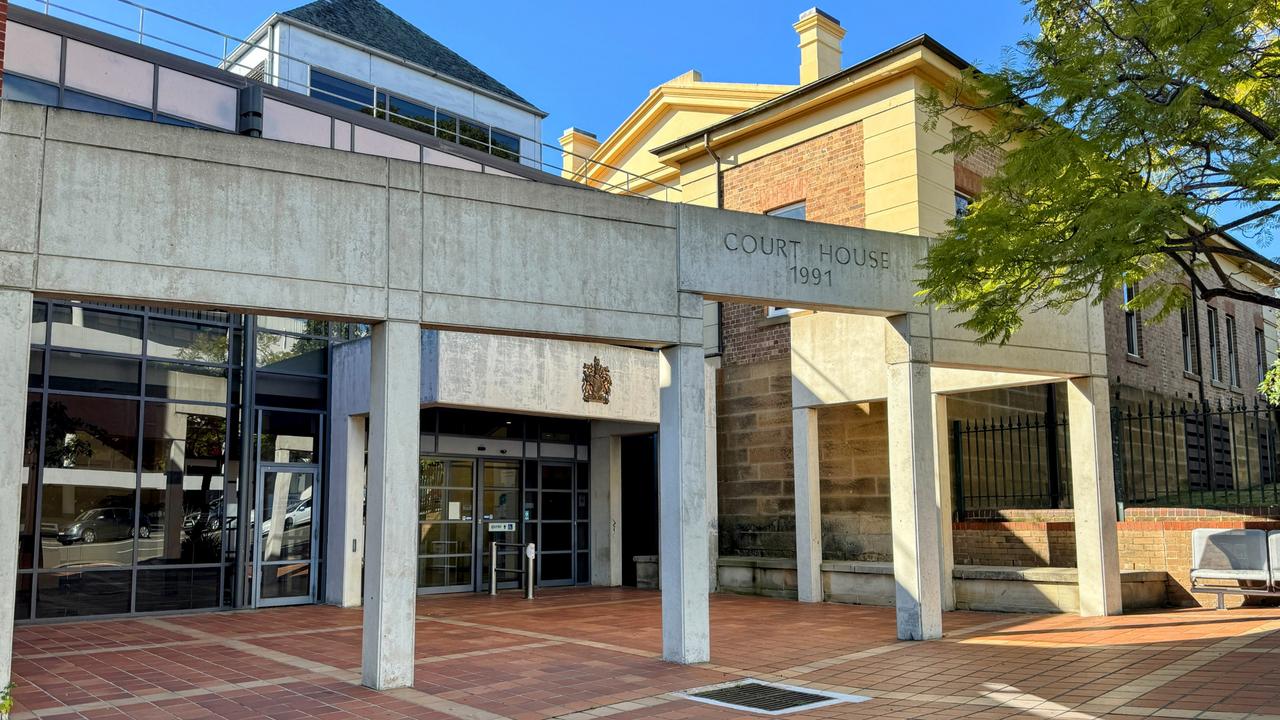Crash victim still recovering seven months on
JOSH Baines was days away from starting Year 12 when he jumped in a mate’s car. It crashed and the 17-year-old “died” at the scene. It has been a long recovery and he’ll never be the same.
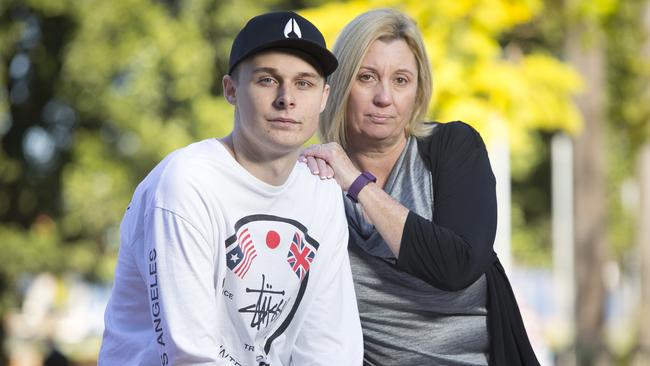
Liverpool
Don't miss out on the headlines from Liverpool. Followed categories will be added to My News.
- ‘Dump and run’ common practice at hospital
- Clinically dead for 40 minutes
- Blind 89-year-old is hospital’s oldest volunteer
- Inside Australia’s largest medical bunker
TEENAGER Josh Baines “died” at the scene of a car crash and revived by paremedics before pieced back together thanks to the skill of Liverpool Hospital trauma experts who gave him back his life.
A few days shy of starting Year 12, the then 17-year-old jumped into a mate’s car which crashed on the Central Coast.
Josh’s list of injuries was so extensive his mother Liz Fielding could hardly recognise him.
“If it wasn’t for his tattoo on his arm, it was impossible to tell ... his head was blown up like a football,” she said.
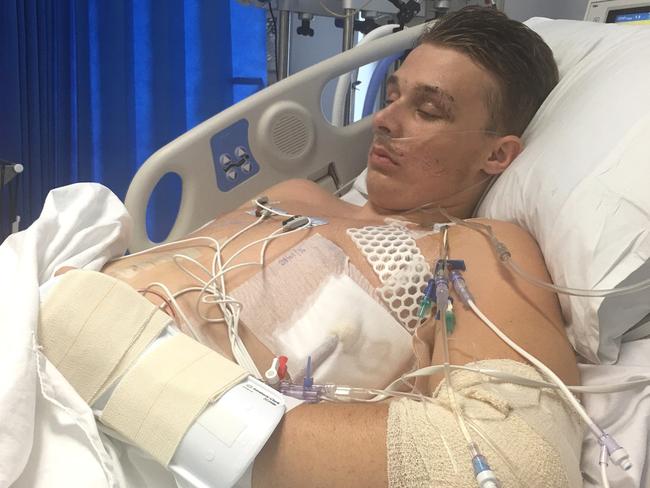
Josh had an ruptured diaphragm, a pelvis that was sheared in two, left and right frontal lobe damage, broken ribs, a lacerated spleen and kidneys, glass in his eyes, neck and hands, and blood clots in both lungs.
He’s had more than 20 blood transfusions and seven surgeries since the accident on January 22 and has had to learn to talk, eat and walk again.
Unsurprisingly, he wishes he could rewind to the moment he decided to take that fateful car ride.
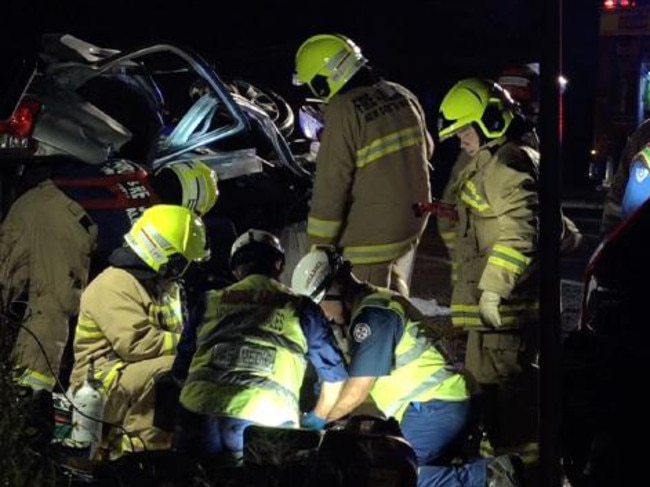
It’s why he and his mum have swung their support behind a new program to reduce the numbers of young people who end up accident victims.
It’s called PARTY — Prevent Alcohol and Risk-Related Trauma in Youth — and it’s being rolled out at the Liverpool Hospital. High school students will meet patients and their families, attend lectures with trauma experts and experience simulated emergencies.
“I would have made a different decision if I’d been through the PARTY program,” Josh said.
“I think if I’d completed the program at school, I wouldn’t have got in the car.”
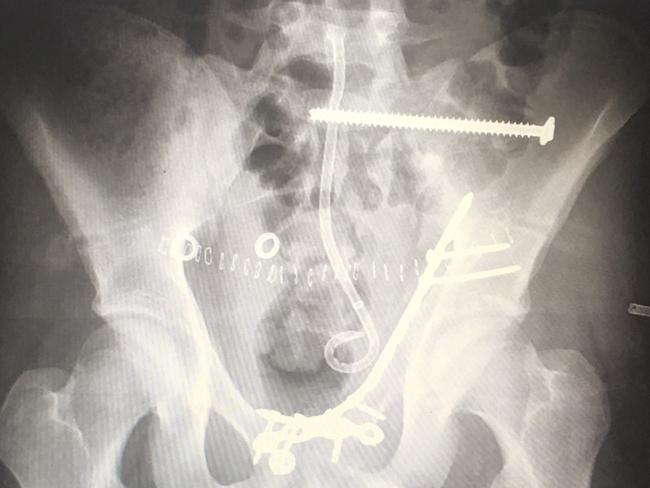
Before the accident he’d spent most days in the gym, hoping to turn his love of rugby league into an NRL career. Now he cannot run.
Doctors didn’t give him a good prognosis but said his level of fitness would help his recovery.
While Josh is a long way from where he was, he’s readjusted his vision.
He has learned to walk, talk and do things for himself and is planning to go to TAFE to complete his Certificate III in Community Services.
“The accident stripped my dignity — I have to ask for help for things other people don’t need help with,” he said.
“I’m not going to make excuses, I’m just going to get on with it.”
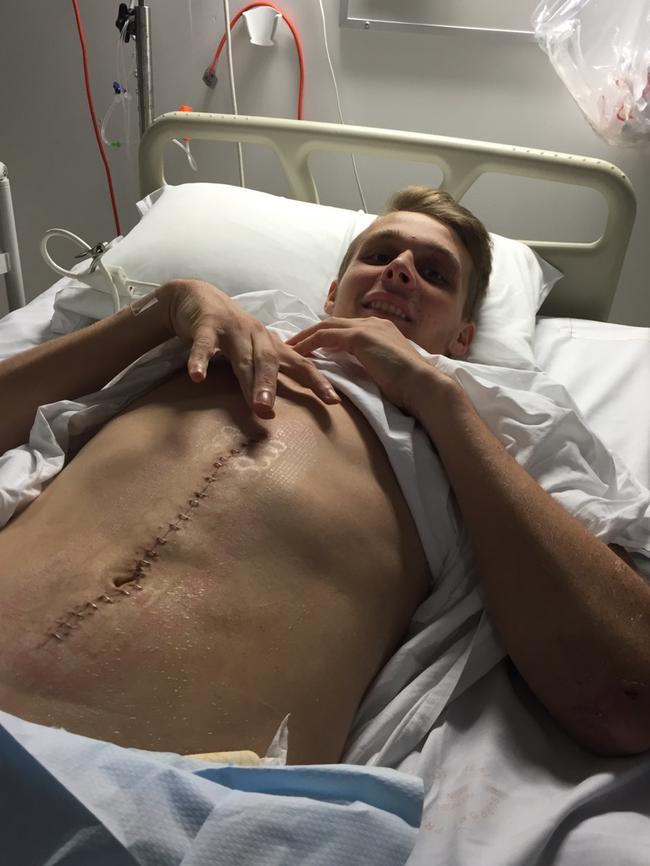
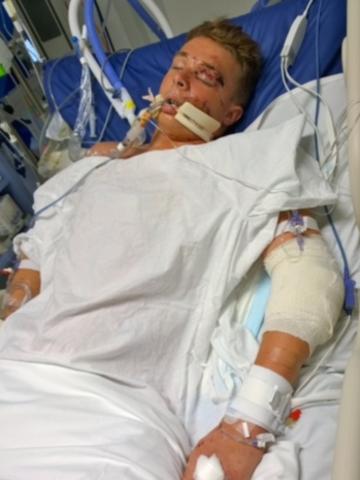
Liverpool Hospital trauma department deputy director Valerie Malka said Josh’s case stood out.
“There were times when we weren’t sure he’d be all right but he was pretty determined from the beginning.
“We knew, this kid was going to pull himself out of it.”
Through it all, his mum has been by his side getting up at 4.30am and heading out the door from her Central Coast home to make the 110km journey to Liverpool each day.
“I was exhausted. There were times I would call my husband and pull over on the side of the road to sleep,” she said.
With support from friends and extended family, Ms Fielding and her husband’s 10 other children, aged nine to 23, didn’t miss out.
“I didn’t see them for all that time, but we had some really good friends and family helping us out,” she said.
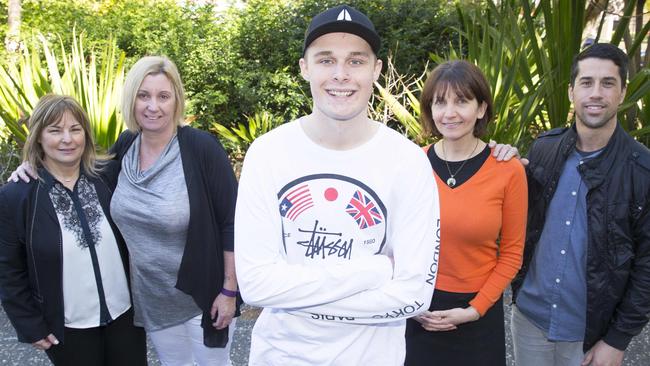
She is one of the speakers in the PARTY program, sharing the story of her son, hoping it will save some other teens from a similar ordeal.
The program was one of the topics at the SWAN Trauma Conference held at Liverpool last Friday and Saturday. The conference is one of the largest in the Southern Hemisphere.
Emergency nurse Joanne Banfield travelled to the conference from Canada’s largest trauma centre, Sunnybrook. She started the PARTY program in 1986 and said it had evolved over three decades.
“In Canada, suicide and motor vehicle incidents are our top two killers in young people, so we spend a lot of time focusing on mental health,” she said.
“Teens growing up in 2016 is very different and more challenging than ever before, especially with social media.
“We need to be more proactive in our approach.”
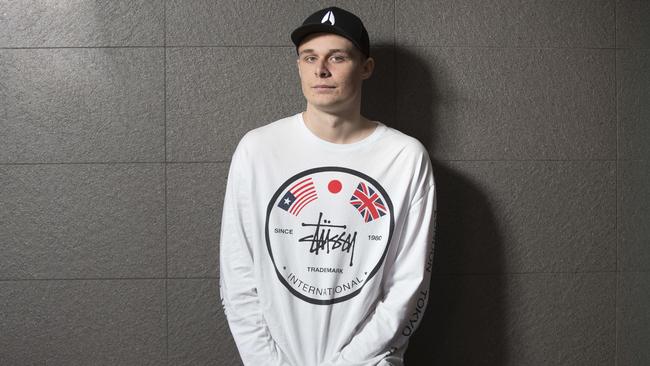
Students attend lectures from hospital staff as well as police, ambulance and fire and rescue officers.
After the lectures, trauma nurses and doctors run through an emergency simulation.
The students attempt to eat lunch in a hard collar and a sling and they get to meet patients who have survived trauma, often left with severe disabilities.
Liverpool Hospital trauma department deputy director Valerie Malka said Josh’s case stood out.
“There were times when we weren’t sure he’d be all right but he was pretty determined from the beginning.
“It really is phenomenal to see Josh now ... he’s made huge progress.”
Dr Malka said having strong family support and the attitude of the individual patient helped determined a patient’s fate.
“He had both of them. We knew, this kid was going to pull himself out of it.”


